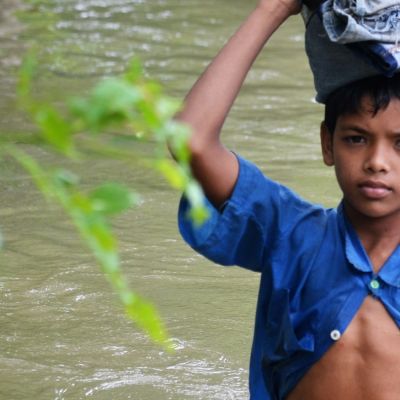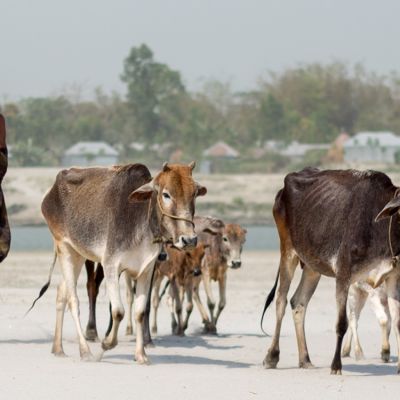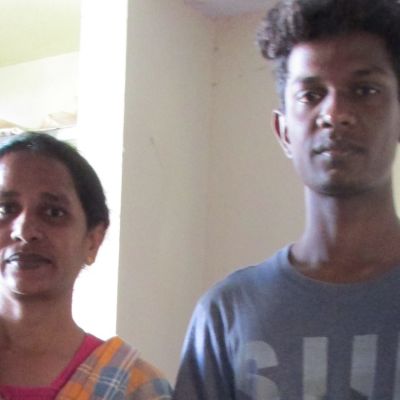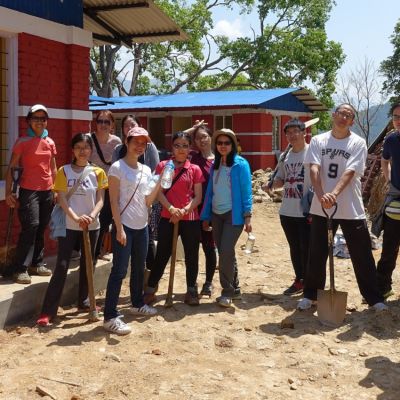Written by: Tony Chan (CEDAR’s Senior Partnership Development Officer and Pastor)
Matthew chapters 5 to 7 documented Jesus’ Sermon on the Mount. At the end of the teaching, He invited the crowds to make a choice: Enter through the narrow gate and live faithfully according to His teachings. He pointed out the consequence of their choices (7:13-23). Jesus then told the parable of the wise and foolish builders; and the wise would put His words into practice (7:24-27).
Jesus often took reference from daily life to explain through parables about difficult teachings. From the parables of the house builders, we learn that even in Jesus’ times, people were aware of the power of the nature and would try to avoid disaster from happening. These verses are often used as biblical proof of the importance of disaster prevention. But, as we study it, let’s also look at the context of Jesus’ teaching and think how we should respond to it wisely.
In the Old Testament, the law told people how to love God according to His will, and such love, should also be practised between men. On the other hand, Jesus’ Sermon on the Mount taught disciples to love God and others sincerely without the Old Testament’s constraints. When we read the passage, we should exercise fearing and loving God, as well as observing the collective sense of it. For example, in chapter 6, when Jesus taught us to pray, “Our” and “us” appeared 9 times in only 5 verses of the Lord ’s Prayer. This indicates that Jesus expected that when we pray, we not only pray for our own needs, but to also pray for the needs of others.
“Disaster Management” is this issue’s theme. No matter where we live, urban or rural settings, we are all under the threat of natural hazards like storms, floods, and earthquakes; but in remote rural communities, people are less alert about disaster management.
In March, I went to Kurigram district, located in northwestern Bangladesh, where desertification prevails. Sand and stones have covered cultivatable farmlands. How did the farmlands become deserts? The locals said climate change was responsible for disrupting their livelihoods.
Located in the lower parts of the Ganges and Brahmaputra rivers, Bangladesh experiences seasonal floods every year due to hundreds of rivers within the country and difficulty in drainage, causing widespread flooding. Climate change has influenced the occurrence of massive floods, flood waters washed up sandstone and covered farmlands, causing desertification to happen.
Desertification heavily affected the lives of local people. Farmers lost their jobs and daily bread. The community members told us that there were two super floods in 2017 that destroyed their homes and crops, and many died or injured.
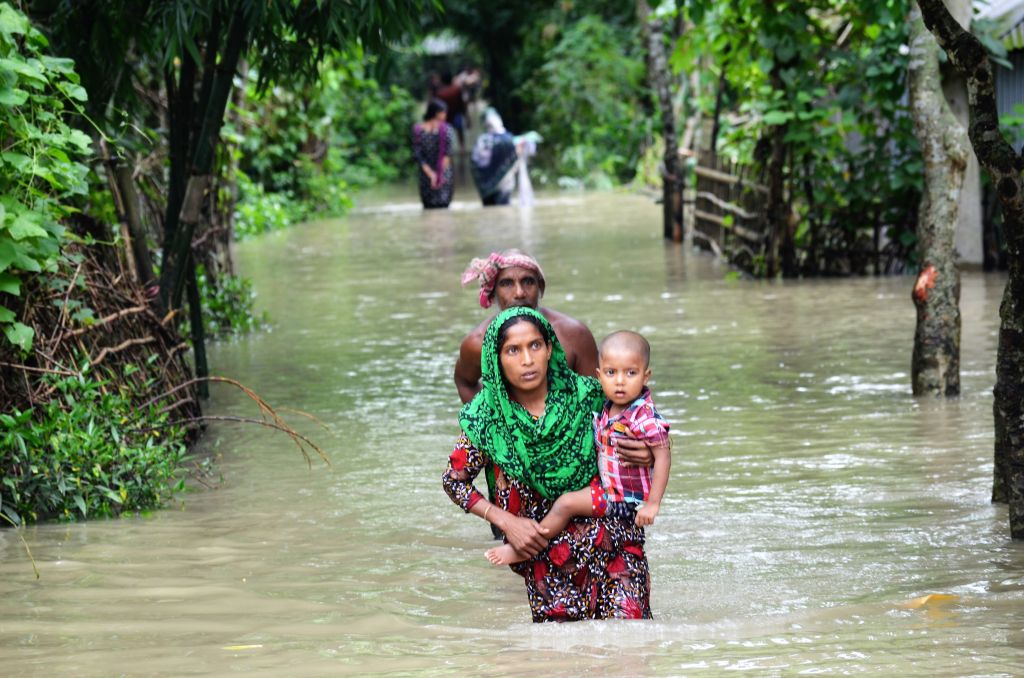
To apply Jesus’ teaching, first, we should thank God for giving “us” our daily bread. But “us” includes more than those who dine with us. It includes every one of God’s children – as well as people living in developing countries.
We can take action to help our neighbours by praying, concerning, and donating. More importantly, we must change our behaviours. Stop all bad practices that intensify the impact of climate change and hurt the poor. Jesus’ parable teaches us that only an ignorant person would ignore the magnitude of natural hazards. We, who live in developed settings, are hurting the environment and the poor for our own advantages. This article and people’s experience in Kurigram help us realise that when we exacerbate climate change, we are exploiting others’ well-being, and taking away their daily bread.
Brothers and sisters, let us practise faithfulness daily and be mindful of the collective essence of Jesus’ teachings that we should also be mindful of those affected by climate change. Start with behavioural change, do some of the followings to ease the changing climate:
- Save energy: Switch off electronic appliances when we are not using them.
- Reuse: Before throwing away unwanted or broken items, think again if someone else may need it or if you can repair it.
- Goodbye single usage: Bring your own containers and cup for take-outs; Use a handkerchief instead of paper towels.
- Eat wisely: Avoid over-preparing/ordering food; include more vegetables than meat in your diet.
- Love yourself ‧ Love earth: Avoid using petroleum made cosmetics and skincare; choose natural/organic beauty products.
Content of this issue
Written by: Jady Sit Every time there is a disaster, we feel sad and anxious for the suffering victims. While some people would pray for them, others would donate generously or organise a fundraising campaign, and some people would form a volunteer team to serve the devastated survivors through humanitarian work or counselling support. Although we try to give what we can, in the face of a natural disaster, we still feel helpless and powerless, because what could we do to stop tragedies that are not of our control? In 2015, the massive earthquake in Nepal brought irreversible destructions: close to 9,000 casualties, 3.5 million people lost their homes, and Kathmandu Durbar Square, a UNESCO World Heritage Site,…
Written by: Tony Chan (CEDAR’s Senior Partnership Development Officer and Pastor) Matthew chapters 5 to 7 documented Jesus’ Sermon on the Mount. At the end of the teaching, He invited the crowds to make a choice: Enter through the narrow gate and live faithfully according to His teachings. He pointed out the consequence of their choices (7:13-23). Jesus then told the parable of the wise and foolish builders; and the wise would put His words into practice (7:24-27). Jesus often took reference from daily life to explain through parables about difficult teachings. From the parables of the house builders, we learn that even in Jesus’ times, people were aware of the power of the nature and would try…
Situated in southern India, Chennai is the sixth biggest city in the country. It is the cultural, economic, and academic hub of South India. Many travel websites named Chennai as “hottest city for travellers” and one of the “best cosmopolitan city”, attracting numerous tourists and expats. However, behind the prosperity are families in slums struggling with everyday living. Stricken by poverty, children and teenagers from slum communities face the threats of dropping out of schools, being physically and psychologically abused, and being malnourished. Through local partner Christian Missions Charitable Trust, we sponsored 240 children and teenagers in eight slums. We support four areas of their growth and development: cognitive, socio-emotional, spiritual, and physical. At the same time, we…
Written by: Tiffany Lam During holiday, would you travel abroad, or do something meaningful? A team of 10 brothers and sisters from Evangelical Free Church of China Waterloo Hill Church (WHC) spent their 10-day holidays in Nepal last April. They travelled to mountainous communities in Gorkha to visit CEDAR’s partner ACN who are doing post-disaster work. “Through this trip, we hope to help brothers and sisters realise what integral mission is and broaden their gospel vision,” says Joshua, former WHC staff and part of the team. Therefore, they stepped out of the air-conditioning room at church and went to remote mountainous area where they practised walking with local people and the meaning of offering a cup of cold water to…



